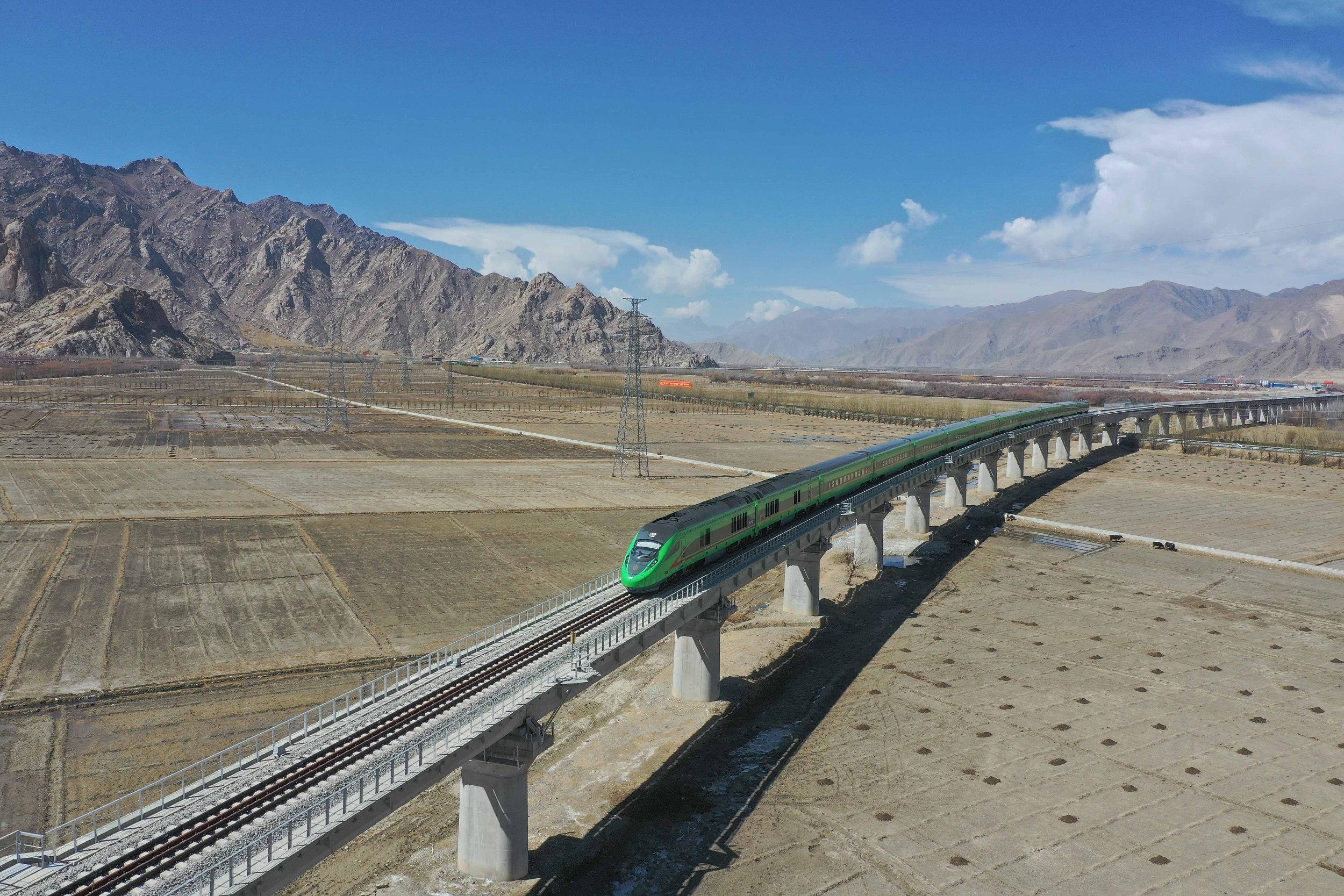Enhancing Strength in Smart Transportation

A Fuxing bullet train passes over Xierong Bridge in Qushui county, Lhasa, Xizang Autonomous Region. (PHOTO: VCG)
By?ZHONG?Jianli
Transport is essential to the efficient working of an economy. Being cognizant of this, in the report to the 20th CPC National Congress, China will continue to advance new industrialization and move faster to boost its strength in the transportation sector.
By the end of 2022, China had 155,000 km of railways in operation, including 42,000 km of high-speed railways. In 2023, the country plans to build more than 3,000 km of railways, including 2,500 km of high-speed lines, and to upgrade the transport system into a modern advanced network, according to China State Railway Group Co., Ltd. (China Railway).
"Building digitalized, networked and intelligent railways is an important task for the transportation sector during the 14th Five-Year Plan period," said Ling Handong, chairman of China Railway Siyuan Survey and Design Group Co., Ltd.(CRSSD).
Ling added that CRSSD has initially established an intelligent surveying system, by using such technologies as UAV surveying and mapping, oblique photography, laser radar, and an unmanned surveying ship. Moreover, the company has been busy developing a set of standards for intelligent transportation that other countries can learn from.
To build a modern, high-quality and comprehensive transportation network, the BeiDou Navigation Satellite System will be more widely used on railways, highways, waterways, civil aviation and postal services, while intelligent transport equipment will be promoted, said an official from the Ministry of Transport.
Wang Guoqing, chairman of Hebei Transportation Investment Group, said it is vital to increase investment in R&D and accelerate the commercialization of sci-tech achievements for transportation, noting that the R&D intensity of the company will rise to 2.5 percent by 2025 from 2.0 percent in 2022.
Wang also stressed the importance of attracting experts to make breakthroughs on major sci-tech projects, such as developing the intelligent detection technology for urban pipe networks and cloud controlled energy-saving trucks on the road.
"The independent innovation ability of China's urban rail transit industry has been greatly enhanced over the years. Many places in China, including Guangzhou, Shanghai, and Shenzhen, have taken the lead in building the world's most advanced smart subway stations," said Liu Wei, chairman of Jiadu Technology Group Co. Ltd.
Liu mentioned that the innovative development of the intelligent rail transit industry chain also creates opportunities for the upgrading of upstream and downstream industries, especially driving traditional manufacturing enterprises in materials, electronic parts and mechanical processing, to realize smart transformation.







